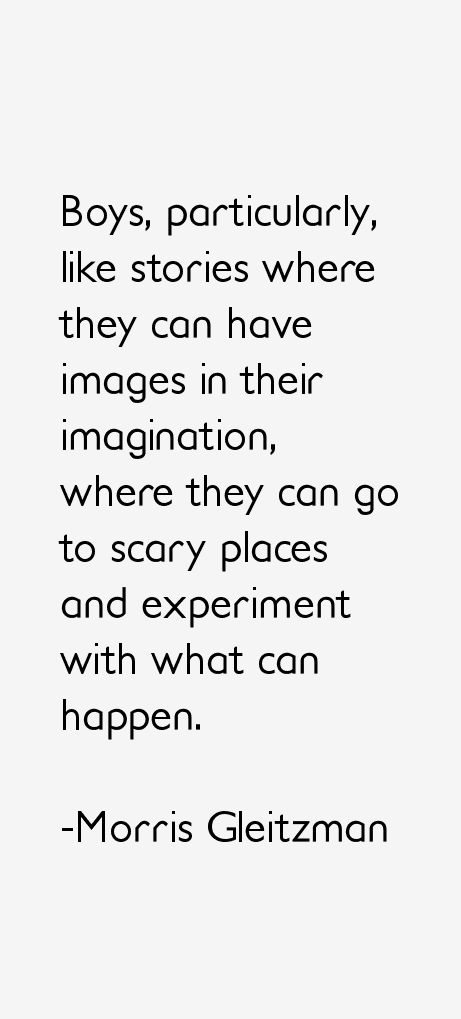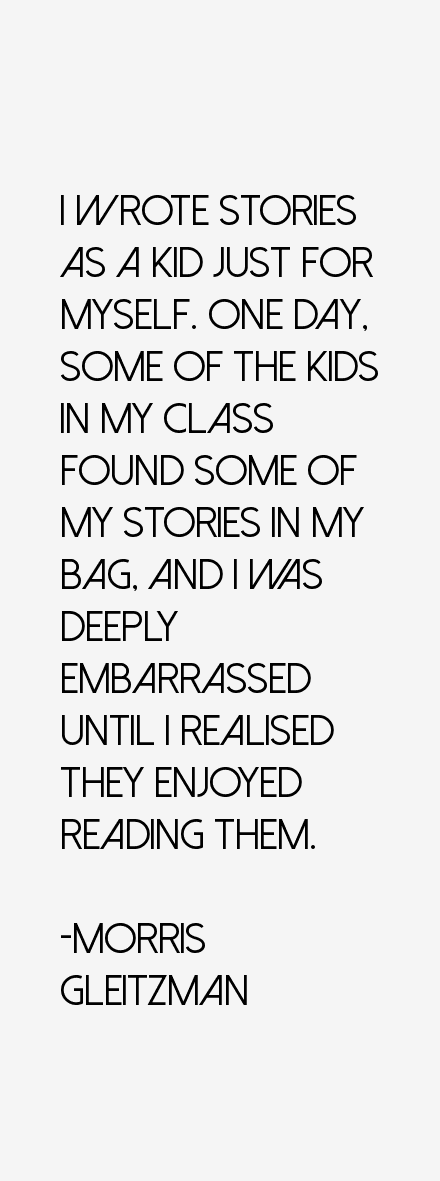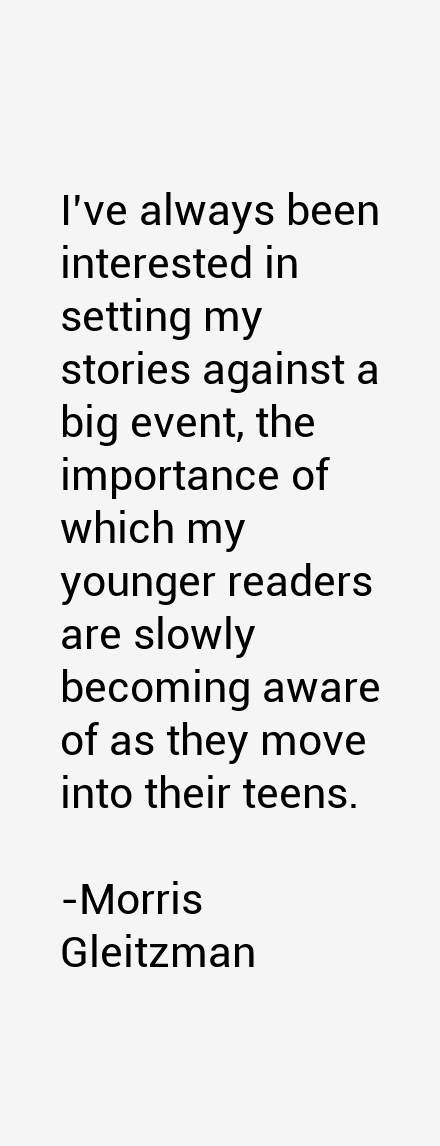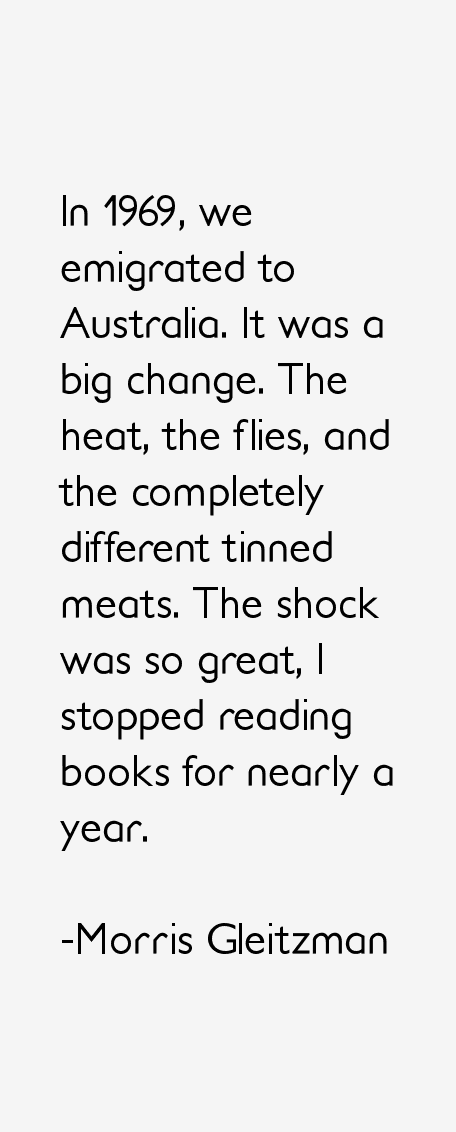Morris Gleitzman Quotes & Sayings (Page 3)
Morris Gleitzman quotes and sayings page 3 (author). Here's quote # 21 through 30 out of the 36 we have.

“Boys, particularly, like stories where they can have images in their imagination, where they can go to scary places and experiment with what can happen.”
“Halfway through primary school, I realised that I was not as physically strong or fearless as many kids. So, in situations of conflict, I quickly learned that it worked better for me to get out of situations or maybe kind of, you know, prevail in a conflict situation by using humour than by trying to punch somebody out.”
“I think probably you can either write for kids, or you can't. That ability to imaginatively be a child and see the world as a child and feel and think like a child - you either have that ability or you don't.”
“I think the best writers use the language they use every day when they talk to friends. When we talk to each other, we tend to talk in short grabs rather than in long flowing sentences. I think that's not a bad way to write.”
“I used to get stuck trying to find the first sentence of a story, then I realised that it was often because I didn't know what problem a character was facing in the story. As soon as I did, I could have the character trying to do something about it or have the problem whack him between the eyes.”
“I want to help children develop strengths that allow them to feel they don't have to push things away mentally... If we 'cotton-ball' kids, it produces adults who are too scared to think for themselves and are easily manipulated.”
“I was named after my Jewish grandfather who left Poland early in the 20th century. What I knew from an early age was that he had lived most of his life in England, his Jewish wife had died, and he married a non-Jewish woman who was my grandmother.”

“I wrote stories as a kid just for myself. One day, some of the kids in my class found some of my stories in my bag, and I was deeply embarrassed until I realised they enjoyed reading them.”

“I've always been interested in setting my stories against a big event, the importance of which my younger readers are slowly becoming aware of as they move into their teens.”

“In 1969, we emigrated to Australia. It was a big change. The heat, the flies, and the completely different tinned meats. The shock was so great, I stopped reading books for nearly a year.”
Morris Gleitzman Quotes Rating
No Ratings Yet
Leave A Comment
























